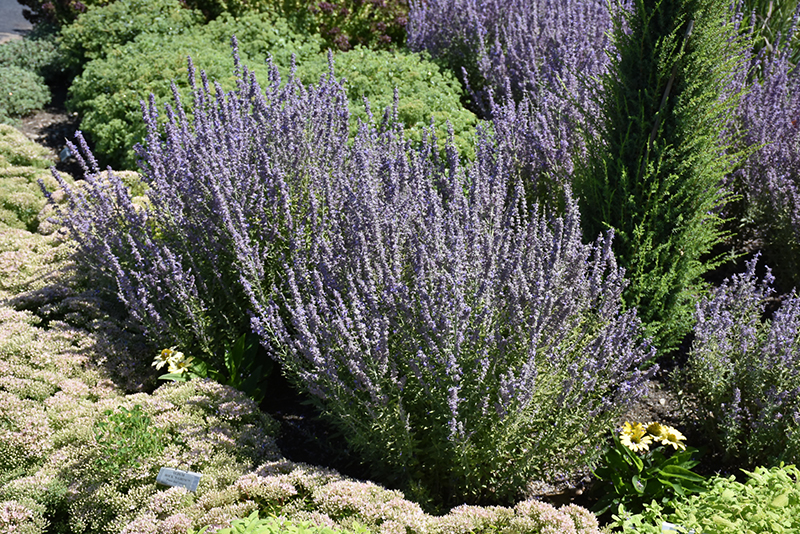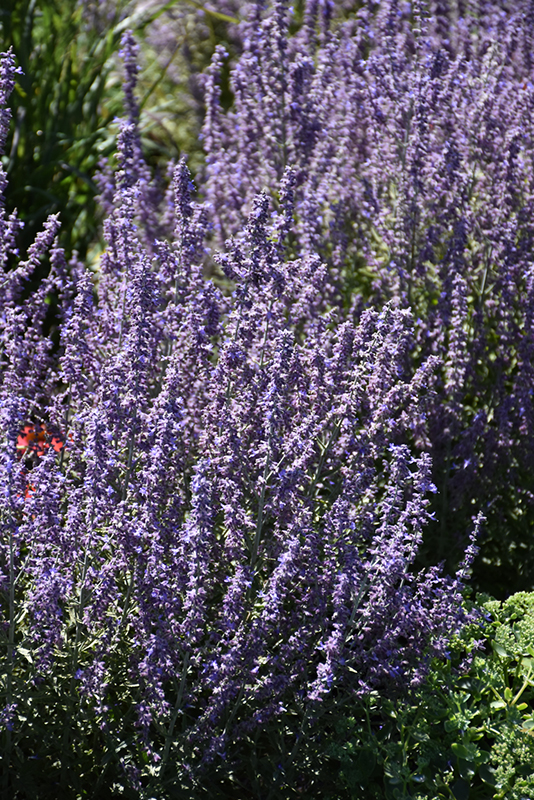Sage Advice Russian Sage Perovskia atriplicifolia 'Sage Advice' Height: 3 feet Spacing: 28 inches
Sunlight:
Hardiness Zone: 4 Brand: Proven Winners Description: This colorful variety forms a dense mound of fragrant gray-green leaves, producing spikes of rich lavender purple flowers from summer until fall on strong, upright plants; vigorous and early blooming; excellent for the garden or mixed containers Ornamental Features Sage Advice Russian Sage features delicate spikes of purple flowers with lavender overtones rising above the foliage from mid summer to early fall. The flowers are excellent for cutting. Its attractive fragrant narrow leaves emerge silver in spring, turning grayish green in color throughout the season. The rose fruits are carried on spikes from early to late fall. Landscape Attributes Sage Advice Russian Sage is an herbaceous perennial with an upright spreading habit of growth. It brings an extremely fine and delicate texture to the garden composition and should be used to full effect. This is a relatively low maintenance plant, and is best cut back to the ground in late winter before active growth resumes. It is a good choice for attracting butterflies and hummingbirds to your yard, but is not particularly attractive to deer who tend to leave it alone in favor of tastier treats. It has no significant negative characteristics. Sage Advice Russian Sage is recommended for the following landscape applications; Planting & Growing Sage Advice Russian Sage will grow to be about 30 inches tall at maturity, with a spread of 30 inches. When grown in masses or used as a bedding plant, individual plants should be spaced approximately 28 inches apart. It grows at a fast rate, and under ideal conditions can be expected to live for approximately 10 years. As an herbaceous perennial, this plant will usually die back to the crown each winter, and will regrow from the base each spring. Be careful not to disturb the crown in late winter when it may not be readily seen! This plant should only be grown in full sunlight. It prefers dry to average moisture levels with very well-drained soil, and will often die in standing water. It is considered to be drought-tolerant, and thus makes an ideal choice for a low-water garden or xeriscape application. It is not particular as to soil type, but has a definite preference for alkaline soils, and is able to handle environmental salt. It is highly tolerant of urban pollution and will even thrive in inner city environments. This is a selected variety of a species not originally from North America.
![]()
![]()
![]()
![]()
![]()
![]()
![]()
![]()
![]()
![]()
![]()
![]()
![]()
![]()
![]()
![]()
Characteristics
Applications
Features & Attributes


